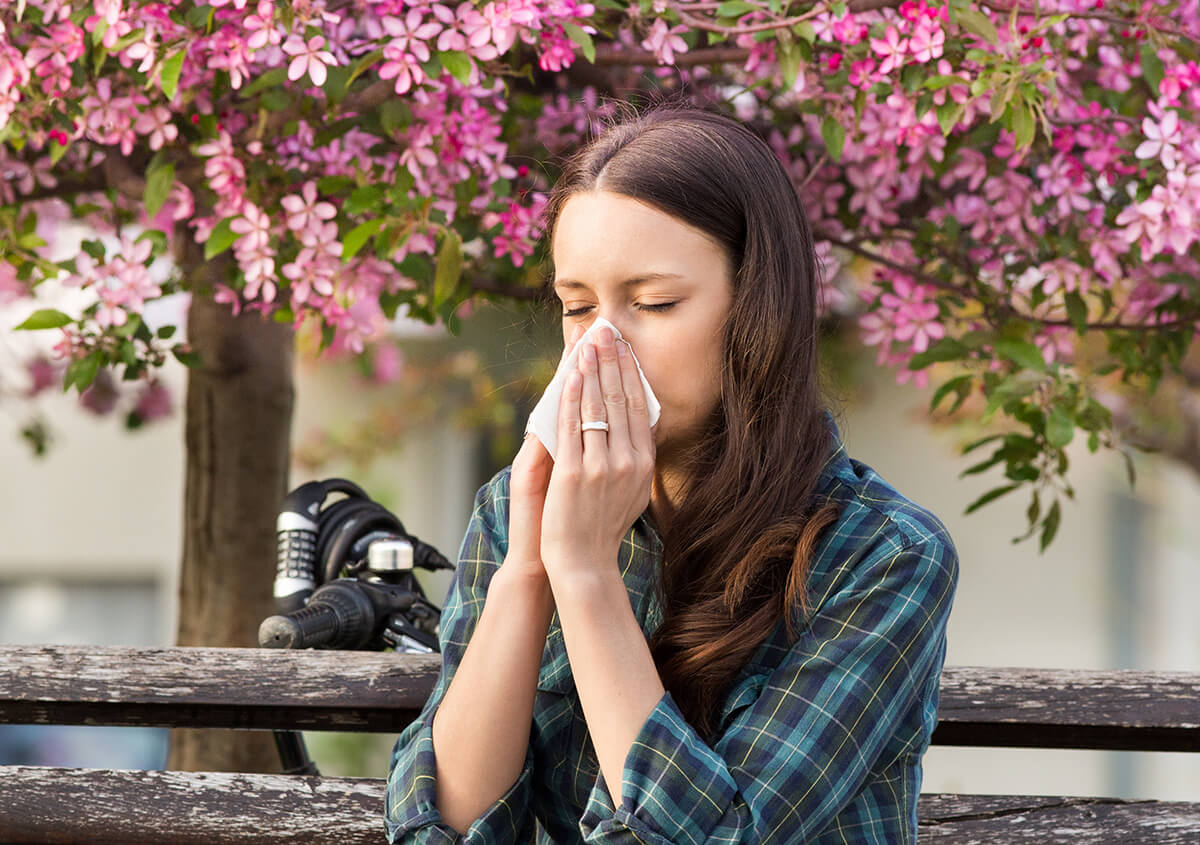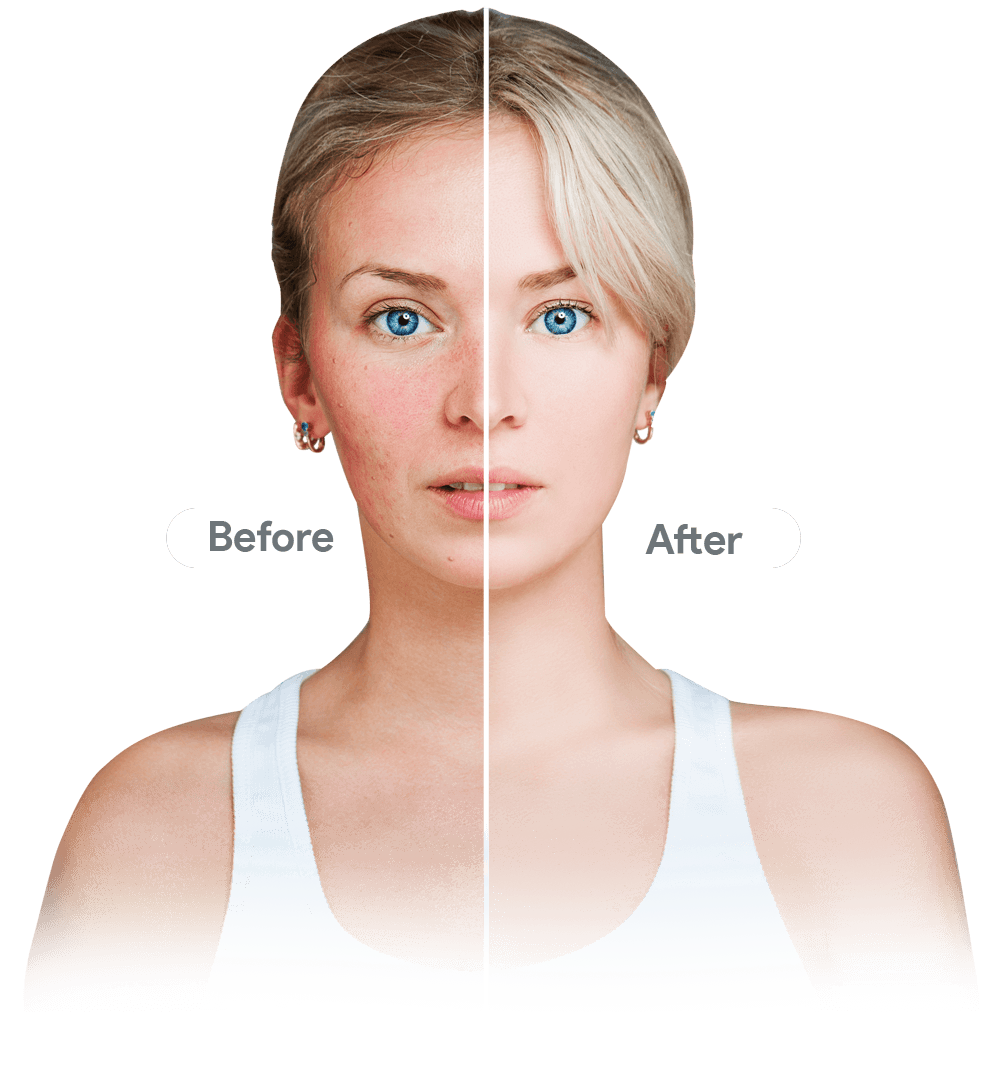
If you have allergic rhinitis (hay fever), a skin allergy, or other seasonal condition, you know that summer isn’t all sunshine and roses. It is also watery eyes, itchy skin, and runny noses. Dr. Achtman, Dr. McConnell, and their team at DSA Dermatology know too. They have years of experience helping Plano, TX residents survive our notorious allergy season.
Tree, grass, and pollen allergy – we’ve got it all
We are fortunate to live amid natural beauty, historic charm, rich culture, and modern convenience. Within driving distance of Dallas, but away from the hustle and bustle, many people say we have it all here in Plano, TX. Unfortunately, that includes all the seasonal allergies. It seems our location is ideal, not only for people but also for pollen.
North winds liberally bring pollens from both East and Central Texas, inundating us with allergens from across the region. This is, of course, in addition to the abundant indigenous plants right here in Plano.
- In spring, allergy patients contend with ash, mulberry, oak, and elm tree pollens.
- Grass pollen is typically high through spring and summer, into fall.
- Ragweed is abundant from midsummer through fall.
- Finally, there is Juniperus ashei, better known by its common name of Mountain Cedar. Although its season is much earlier, usually peaking in December and ending in February, no list of Texas allergens would be complete without including it. It is most concentrated in Central Texas, and the winds bring it right to our door.
Do you have the fever?
When you hear about seasonal allergies, you probably think of problems like hay fever and cedar fever, both of which are misleading terms. They are not actually hay or cedar allergies, and they don’t give you a fever. Hay fever refers to allergic reactions to grasses and ragweed, while a type of juniper (aka mountain cedar) is responsible for cedar fever.
These “fevers” are allergic rhinitis, which is a collection of symptoms primarily affecting the nasal area. It typically includes sneezing, sore throat, nasal drip, watery eyes, itching sinuses, and a stuffy nose. However, the health effects can extend beyond direct symptoms. If you have allergic rhinitis, there is a good chance that you also have asthma, eczema, or both. These three conditions occur together very frequently, and a bout of allergic rhinitis can aggravate the other two.
Insect bites – the other seasonal allergy
 Plants and pollens aren’t the only things that come out in droves with warmer weather. Bugs of every imaginable variety are crawling, flying, and hopping wherever you look. Although most of them are harmless, there are dozens of insects that can cause painful, itchy bites or stings. These include wasps, hornets, fleas, ticks, fire ants, spiders, and, of course, mosquitoes.
Plants and pollens aren’t the only things that come out in droves with warmer weather. Bugs of every imaginable variety are crawling, flying, and hopping wherever you look. Although most of them are harmless, there are dozens of insects that can cause painful, itchy bites or stings. These include wasps, hornets, fleas, ticks, fire ants, spiders, and, of course, mosquitoes.
To minimize the misery and risk of bug season, follow these spring and summer skin care tips:
- Wear protective clothing – If you are spending the day outdoors, long sleeved shirts, long pants, and closed shoes will help protect your skin, from both sun exposure and insects. Also be careful of openings where bugs can get inside your clothing. Tuck your shirt-tail inside your waistband, and pant cuffs inside your socks. Avoid loose collars and don’t leave buttons undone.
- Choose repellents carefully – Topical insect repellent is one of your best defenses, but you need the right product. The two qualities you want in a repellant are effectiveness, and skin-safety. Generally, formulas with at least 20 to 30 percent DEET work best. Whatever you choose, test it on a small area of skin and see if you have an adverse reaction before you need to use it. Sometimes it can take several hours before symptoms of a skin allergy appear, so it’s best to do this at least a day in advance.
- Use a bed net – Sleeping outdoors is a great way to enjoy warm weather and feel close to nature. However, you don’t want all of nature (namely mosquitoes and other bugs) to get too close.
- Keep anti-itch cream handy – Although avoidance is the best defense, odds are you will have at least a few bug bites by summer’s end. Be ready for them with an over the counter hydrocortisone cream or similar product. If you have skin allergies, be sure the product doesn’t contain any allergens, or it will make the problem worse.
- Use an ice pack for swelling – Bee stings in particular are likely to swell, along with itching and hurting. If you don’t have an ice pack on hand, a bag of frozen peas or corn makes a great substitute.
- Seek medical attention – Most bug bites hurt, itch, or sting for a short time, and then they fade away. However, some – like spider bites or bee stings in allergic individuals – can be life threatening. If you have symptoms such as vomiting or difficulty breathing, seek emergency medical care right away. Additionally, if a bite becomes infected or does not fade away as expected, have it examined by a skin care expert.
From skin allergies to bug bites, you can count on the team at DSA Dermatology for quality care and reliable advice. Call us at (972) 362-9567 to schedule an appointment.
Why Choose DSA Dermatology?
At DSA Dermatology, we bring to you the best of not one but three leading dermatologists in Plano TX,



At DSA Dermatology, we bring to you the best of not one but three leading dermatologists in Plano TX, Dr. Daniel S. Achtman, Dr. Carmine G. McConnell and Dr. Jordan. Achtman.
Dr. Achtman is a board-certified Dermatologist with over three decades of experience. Having graduated from the medical school of McMaster University, he also studied at the UTSW Medical Center in Dallas, TX where he also served as Chief Resident in the Department of Dermatology. In addition to possessing extensive training and experience in cosmetic enhancement techniques, Dr. Achtman is widely known as a leading expert in the diagnosis and treatment of various skin cancers. He is an active member of the American Society for Dermatologic Surgery. Dr. Achtman goes the extra mile to understand your medical concerns and to ensure that he helps you meet your unique aesthetic goals.
Dr. Carmine G. McConnell is a board-certified physician in Plano TX. Having been trained at McMaster University, Canada, she went on to earn her board certification in Texas. Having served as Chief of Staff of her department at Plano Medical Center, she has over two decades of experience in practicing medicine in her practice and while assisting Dr. Achtman in the practice of dermatology. In addition to her extensive postgraduate training in laser therapy and aesthetic surgery, among other procedures, she possesses vast experience in both cosmetic dermatological techniques and family medicine. As a conscientious and caring physician, Dr. McConnell provides her patients with customized non-surgical treatments to help address health and aesthetic concerns related to the skin. She is also keen on helping patients understand their skin and how it can be cared for and protected.
Dr. Jordan Achtman is a board-certified dermatologist in DSA Dermatology at Plano, TX. Dr. J. Achtman graduated from the University of Pennsylvania in Philadelphia and completed his residency in dermatology at UT Southwestern. His expertise spans general, surgical, and cosmetic dermatology. Dr. J. Achtman also has various special interests including chronic itch, infectious diseases of the skin, and the relationship between mental health and skin health. He is also very keen on helping patients form healthy skincare regimens and habits. In the hands of Dr. J. Achtman, you can be assured of innovative and cutting edge solutions for all your skin concerns.


